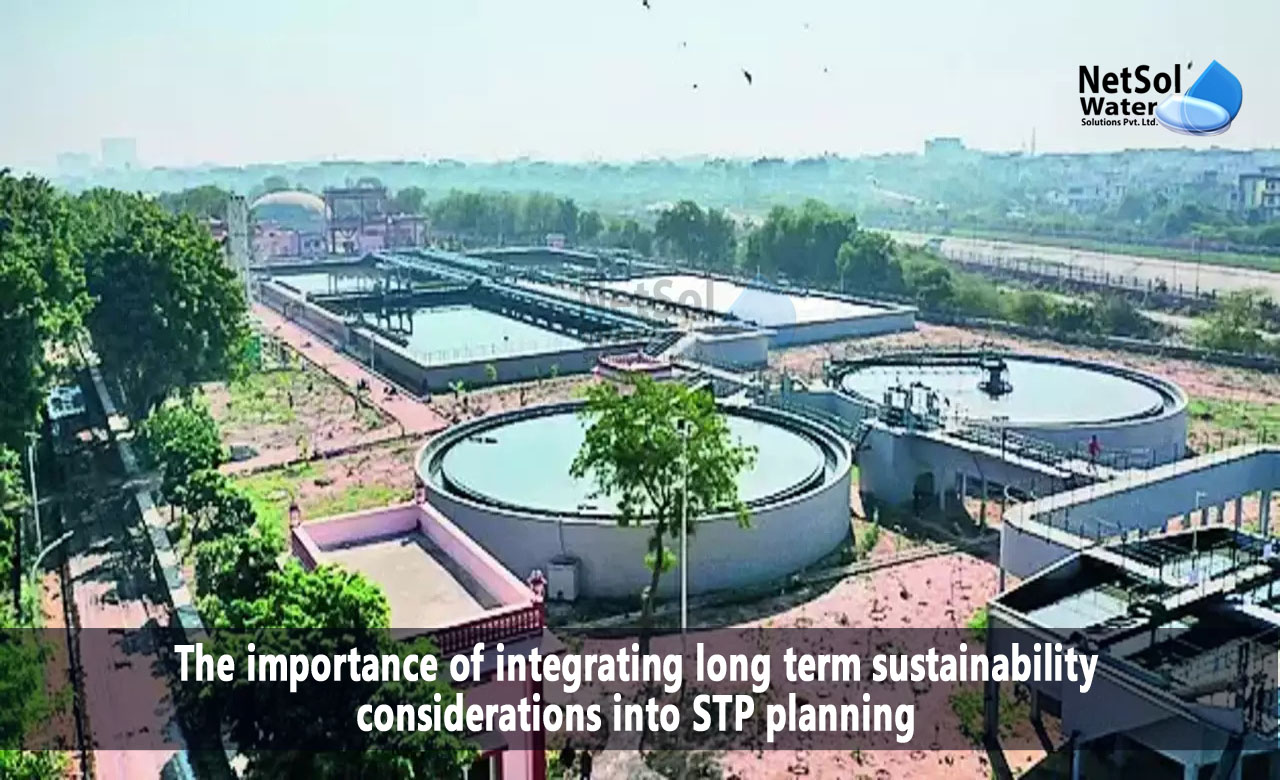STP Plant Planning: Integrating Long-Term Sustainability Consideration
Sewage treatment plants (STPs) play a critical role in ensuring the safe and sustainable management of wastewater. Effective STP planning is essential to meet the present and future needs of growing populations while minimizing environmental impact.
We will explore the importance of integrating long-term sustainability considerations into STP planning, highlighting key aspects such as resource efficiency, resilience, and community engagement.
Resource Efficiency and Optimization
Some of its key points are as follows:
1. Water Management:
Incorporating water conservation measures, such as rainwater harvesting and water reuse systems, reduces the demand on freshwater sources and enhances overall resource efficiency. By optimizing water usage within the STP and promoting water-efficient practices in the community, the long-term sustainability of water resources can be ensured.
2. Energy Optimization:
Designing STPs with energy-efficient technologies and renewable energy integration helps reduce greenhouse gas emissions and dependency on fossil fuels. Energy optimization strategies, such as anaerobic digestion for biogas production and energy recovery from wastewater, contribute to the long-term sustainability of STPs.
3. Nutrient Recovery:
Implementing nutrient recovery technologies allows for the extraction of valuable resources, such as nitrogen and phosphorus, from wastewater. These nutrients can be repurposed as fertilizers, reducing the need for synthetic alternatives and minimizing nutrient pollution in water bodies.
Resilience and Climate Change Adaptation
Some of its key points are as follows:
1. Climate Change Considerations:
Incorporating climate change projections and adaptation strategies in STP planning helps build resilience against future challenges. This includes accounting for rising sea levels, increased rainfall intensity, and temperature variations that may impact infrastructure design, operational protocols, and effluent management.
2. Natural Hazard Resilience:
Assessing potential risks and vulnerabilities to natural hazards, such as floods and earthquakes, allows for the implementation of appropriate mitigation measures. Designing STPs with resilient infrastructure, backup systems, and emergency response plans ensures uninterrupted operation and reduces the impact of natural disasters.
Community Engagement and Stakeholder Collaboration
Some of it key points are as follows:
1. Public Participation:
Involving the local community and stakeholders in the planning process fosters transparency, trust, and a sense of ownership. Public consultations, information sharing, and education programs create opportunities for the community to provide input, voice concerns, and understand the benefits and environmental impacts of STPs.
2. Social Acceptance:
Addressing social, cultural, and aesthetic aspects of STP planning is crucial for achieving social acceptance. Integrating architectural design, landscaping, and odor control measures can mitigate potential negative impacts on the surrounding community and enhance the aesthetic value of the facility.
Summary:
Integrating long-term sustainability considerations into sewage treatment plant planning is crucial for ensuring efficient and resilient wastewater management. By prioritizing resource efficiency, optimizing energy and water usage, and implementing nutrient recovery systems, STPs can minimize environmental impact and contribute to sustainable development. Planning for climate change adaptation and building resilience against natural hazards further enhances the long-term viability of STPs. Finally, community engagement and stakeholder collaboration are essential to fostering social acceptance, addressing concerns, and promoting the overall success of STP projects. By embracing these principles, we can create sewage treatment plants that not only meet immediate needs but also contribute to a sustainable future for generations to come.
Leading manufacturer of sewage treatment plants in India.
Netsol Water is the leading manufacturer, supplier, and exporter of a quality selection of water treatment, and wastewater treatment products in India, by using advanced sewage treatment methods.
RO plants, water softeners, ETPs, STPs, DM plants, AMC, O&M, Ultra filtration, UV, Ozonation, ZLD plants, Anoxic tanks, and other goods and services are available from us. We also provide services to businesses in sectors including automotive, pharmaceutical, textile, pulp & paper, beverages, refineries, schools, hospitals, office buildings, and hotels, among others.
Netsol Water is Greater Noida-based leading water & wastewater treatment plant manufacturer. We are industry's most demanding company based on client review and work quality. We are known as best commercial RO plant manufacturers, industrial RO plant manufacturer, sewage treatment plant manufacturer, Water Softener Plant Manufacturers and effluent treatment plant manufacturers. Apart from this 24x7 customer support is our USP. Call on +91-9650608473, or write us at enquiry@netsolwater.com for any support, inquiry or product-purchase related query.



